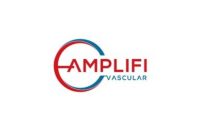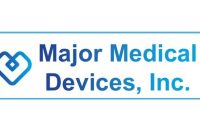Study Designed to Evaluate the Safety and Efficacy of the AMDS Hybrid Prosthesis to Treat Acute DeBakey Type I Aortic Dissections & Support U.S. FDA PMA Submission
ATLANTA, July 27, 2022 /PRNewswire/ — Artivion, Inc. (NYSE: AORT), a leading cardiac and vascular surgery company focused on aortic disease, announced today that it has initiated enrollment in the PERSEVERE clinical trial to determine if patients with an acute DeBakey Type I aortic dissection can be treated safely and effectively using the AMDS Hybrid Prosthesis. The trial is designed to support the company’s forthcoming application to the U.S. Food and Drug Administration (FDA) for premarket approval of the AMDS.
The PERSEVERE trial is a prospective, multicenter, non-randomized clinical trial consisting of approximately 100 participants in the U.S., who have experienced an acute DeBakey Type I aortic dissection. Each participant will be followed for up to 5 years. The combined primary efficacy and safety endpoints will determine the impact of the AMDS Hybrid Prosthesis on reducing mortality, new disabling stroke, myocardial infarction, and new onset renal failure requiring dialysis, and also re-expansion of the true lumen of the aorta.
“We are pleased to announce that the first patient in our PERSEVERE clinical trial has been enrolled at Hartford Hospital,” said Pat Mackin, Chairman, President, and Chief Executive Officer of Artivion. “Through the PERSEVERE trial, we will study the safety and efficacy of the AMDS to treat patients suffering from acute DeBakey Type I aortic dissections, a life-threatening condition characterized by extremely high mortality rates.”
Mr. Mackin added, “If the trial proceeds as planned and meets its endpoints, we believe we can achieve FDA approval for patient access to the AMDS in late 2024 or early 2025.”
Dr. Wilson Szeto, the PERSEVERE National Principal Investigator, Chair of the Steering Committee and Chief of Cardiovascular Surgery at Penn Presbyterian Medical Center, said, “Acute aortic dissection is a devastating disease with high morbidity and mortality. The surgical treatment is technically demanding. With the PERSEVERE trial, we intend to show the benefits that AMDS brings to patient outcomes and expand the therapy to more surgeons.”
Dr. Mohiuddin Cheema, the Principal Investigator and Cardiovascular Surgeon at Hartford Health, who implanted the first AMDS in the trial, said, “I’m thrilled to be participating in the PERSEVERE study and to have treated the 1st patient with the AMDS in the United States. Implantation of the device was simple and added minimal time to the surgery. On the post-op CT scan we saw expansion of the true lumen and resolved malperfusion. Additionally, there was no presence of distal anastomotic new entry (DANE), which gives confidence that the aorta will continue to remodel positively over time and decrease the risk of future re-operation.”
The AMDS is the world’s first aortic arch remodeling device for use in the treatment of acute Type I aortic dissections. It is used as a complement to, and in conjunction with, hemi-arch replacement without adding technical complexity. The design of the AMDS allows for rapid deployment of the graft in the aortic arch during a standard replacement of the ascending aorta, adding less than five minutes to the procedure time. The deployment of the AMDS preserves the native arch, potentially allowing for minimally invasive re-interventions, including the repair of additional entry tears, rather than an invasive arch repair. AMDS is available in the markets of European CE Mark countries and Canada. In the clinical trial supporting the CE Mark and Health Canada approvals, the AMDS was shown to reduce mortality, complications and reoperations in comparison to published rates with the standard of care, thereby improving the care of patients and offering potentially significant cost savings for the health care system.
Globally, approximately 48,000 patients suffer from acute Stanford Type A aortic dissections annually, an estimated $540 million market opportunity pending regulatory approvals. Aortic dissection occurs when the innermost layer of the aorta tears and blood surges through the tear separating the layers of the aorta. In acute DeBakey Type I aortic dissections, a subset of Type A dissections, the dissection flap originates in the ascending aorta and continues down into the descending thoracic aorta. Left untreated, aortic dissections can lead to death. The current standard of care for repairing acute DeBakey Type I aortic dissections with a primary entry tear in the ascending is a hemiarch repair which involves open chest surgery during which the ascending thoracic aorta is replaced. Though this typically addresses the most critical and pressing issues resulting from acute DeBakey Type I dissections, it is often not enough. Hemiarch repair alone does not address downstream true lumen expansion or treating the false lumen beyond the ascending aorta, which could lead to costly and often fatal complications such as continued blood flow in the false lumen, an aneurysmal aorta, and malperfusion with subsequent end-organ ischemia resulting from a lack of blood-flow.
Headquartered in suburban Atlanta, Georgia, Artivion, Inc. is a medical device company focused on developing simple, elegant solutions that address cardiac and vascular surgeons’ most difficult challenges in treating patients with aortic diseases. Artivion’s four major groups of products include: aortic stent grafts, surgical sealants, On-X mechanical heart valves, and implantable cardiac and vascular human tissues. Artivion markets and sells products in more than 100 countries worldwide. For additional information about Artivion, visit our website, www.artivion.com.
Statements made in this press release that look forward in time or that express management’s beliefs, expectations, or hopes are forward-looking statements within the meaning of the Private Securities Litigation Reform Act of 1995. Such forward-looking statements reflect the views of management at the time such statements are made. These statements include our beliefs that, if the trial meets its endpoints, we can still achieve FDA approval for the use of the AMDS by early 2025; and that approximately 48,000 patients suffer from acute Stanford Type A aortic dissections annually, representing an estimated $540 million market opportunity for Artivion upon various regulatory approvals. These forward-looking statements are subject to a number of risks, uncertainties, estimates, and assumptions that may cause actual results to differ materially from current expectations including that the Company may discontinue the PERSEVERE trial at any time; the PERSEVERE clinical trial may be delayed, may not prove its endpoints or may fail; and that, even if successful, the FDA or other regulatory bodies may not grant approval for the AMDS or may grant an indication narrower than that sought by Artivion, reducing the market opportunity for the AMDS. These risks and uncertainties include the risk factors detailed in our Securities and Exchange Commission filings, including our Form 10-K for year ended December 31, 2021. Artivion does not undertake to update its forward-looking statements, whether as a result of new information, future events, or otherwise.
Contacts:
|
Artivion |
Gilmartin Group LLC |
|
D. Ashley Lee |
Brian Johnston / Lynn Lewis |
|
Executive Vice President |
Phone: 332-895-3222 |
|
& Chief Financial Officer |
|
|
Phone: 770-419-3355 |
SOURCE Artivion, Inc.






